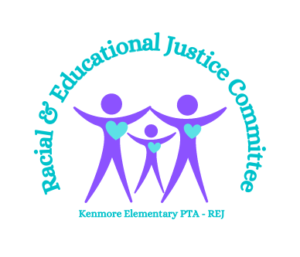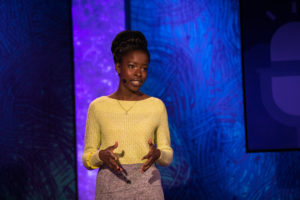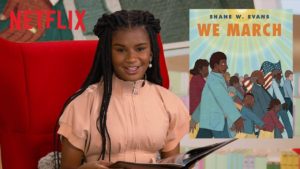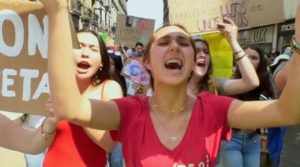The Kenmore Elementary Parent Teacher Association (KEPTA) does not assume any responsibility or liability for the content that may be present within external Websites linked to and from this site that are operated or created by or for organizations outside of KEPTA. The linking to or from this site does not imply on the part of KEPTA or any of its volunteers guarantee of quality, assumption of liability or endorsement of the organizations maintaining external Websites. Those organizations are solely responsible for the operation of their Website and quality of the content including advertisements, links, media, images and text that they may deem appropriate. The mention of any business or service in this website does not imply endorsement by KEPTA.
Welcome to our KEPTA REJ Connections Page! Each month our REJ committee will provide our Kenmore Cub community with family read alouds, activities, short videos and resources to assist our community growth in racial literacy, cultural competency and equitable education. We hope these monthly resources will inspire courageous conversations about racial injustice, equity and youth activism in our homes. We are KENMORE–nurturing brave, inclusive, and empathetic children alongside one another!
Youth Agency And Activism Definition
 Youth Agency and Activism is about youth autonomy. Youth have the power to create a world that isn’t perceived through an adult lens. This is their right, so we must equip them with the tools to claim agency over themselves, their bodies, and their circumstances. We must redefine youth as a noun, a group of subjects, to youth as verbs–agents of change. This helps us disrupt the notion that only adults are leaders.
Youth Agency and Activism is about youth autonomy. Youth have the power to create a world that isn’t perceived through an adult lens. This is their right, so we must equip them with the tools to claim agency over themselves, their bodies, and their circumstances. We must redefine youth as a noun, a group of subjects, to youth as verbs–agents of change. This helps us disrupt the notion that only adults are leaders.
Agency is the reclamation of voice and community centered practices that shapes new futures and allows youth to be the architects of these liberated spaces.
Activism is an act that inspires social and political change. There are different forms of activism that are intercultural and intracultural, that lends itself to different forms of solidarity. Activism and agency can be immediate, local, and community-based, as well. Activism helps students move beyond self to collective efforts for and with others.
-Melissa Riley, Assistant Director of Equity Pedagogy, Northshore School District
-Ayva Thomas, Assistant Director of Racial and Educational Justice
-Ranna Harb, Racial and Educational Justice Specialist
Family Resources
Children’s Books Read Alouds
We March by Shane W. Evans, tells the story of a child who participated with his family in the 1963 March on Washington. Read by 16 year-old social activist, Marley Dias. Marley is the founder of #1000BlackGirlBooks, an international movement to increase access to books with Black female protagonists. Thousands of books have been donated all over the world as a result of her activism.
Say Something by Peter Reynolds, challenges young readers to speak up because a single voice can make a big difference.
Family Activity
Using your voice to “Say Something” is a powerful way to help change the world. Poetry can empower young people to not just find their voice but also discover how to use it.
Post-It Note Poetry: Post-It Notes or small pieces of paper are a great canvas for poetry. After listening to the read alouds, write down words or phrases that hold meaning for you on your Post-Its. Arrange the Post-Its into lines of poetry. You can rearrange again and again until your poem feels complete. The power of your voice through poetry can inspire change. For more inspiration Check out Post-It Note poetry as peaceful protests around the world.
Kenmore Cub example:
Stop hurt
marching comforting
safe
helping change.
Engage
 Northshore Speaks Support the Northshore Community in sharing their voices. A virtual event on April 29th at 6 p.m. Students K-12, along with staff are featured in this spoken word poetry event. Click the link for more details on how to submit your own original spoken word poem.
Northshore Speaks Support the Northshore Community in sharing their voices. A virtual event on April 29th at 6 p.m. Students K-12, along with staff are featured in this spoken word poetry event. Click the link for more details on how to submit your own original spoken word poem.
Watch

“TEW_20181117_2RL2719_1920” by TED Conference is licensed with CC BY-NC-ND 2.0. To view a copy of this license, visit https://creativecommons.org/licenses/by-nc-nd/2.0/
Amanda Gorman “The Hill We Climb”
The nation’s first youth poet laureate and activist recites her inauguration day poem. Amanda Gorman uses spoken word to advocate for change and imagine new futures.
Autumn Peltier speaks about her role as Chief Water Protector for the Anishnabek Nation. This young activist has spoken several times at the United Nations to advocate for water rights and is known as “The Water Warrior”.
Adult Resources
Virtual Tour
Young Leaders of Social Change This online exhibit showcases ten young change makers featured in We The Future an education campaign co-curated with the Gates Foundation Discovery Center’s Youth Ambassador Program. The exhibit celebrates youth leadership and action across a range of social justice issues.
Watch
PBS Earth Focus: Youth Activism “In 2019, sixteen children from across the world including Greta Thunberg filed a historical, global lawsuit, petitioning the United Nations Committee on the Rights of the Child to hold five of the world’s leading economic powers accountable for inaction on the climate crisis. Hear from them and their families about why they joined the movement.”
Then and Now
Watch Stacey Abrams as a teen activist speaking at the 30th Anniversary March on Washington in 1993. Challenging issues related to social justice led her on the path to becoming the American politician, lawyer, voting rights activist, and author we know today.
Spotlight On Youth Activists
These young people and many more are changing the world through Agency and Activism.
- Marley Dias, 16, 1000 black girls in books campaign
- Desmond is Amazing, 14, LGBTQ youth visibility
- Yara Shahidi, 21, women’s and girl’s engagement
- Shamma bint Suhail Faris Mazrui, 28, youth advocacy
- Standing Rock Protests
- Jamie Margolin, 20 (climate change)
- Autumn Peltier,17 “water warrior” & children’s rights
- Isra Hirsi, 16, climate activist (also Ilhan Omar’s daughter)
- Xiuhtezcatl Martinez, 18, climate activist
Your voice matters! Join us in increasing racial and educational justice in our community.


